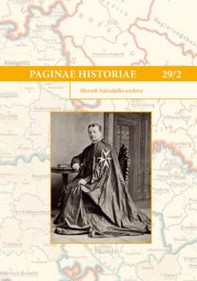ŽENY V POŠTOVNÍ SLUŽBĚ ČESKÝCH ZEMÍ
WOMEN IN POSTAL SERVICE IN THE CZECH LANDS
Author(s): Jan KramářSubject(s): Gender history, Labor relations, Government/Political systems, WW II and following years (1940 - 1949)
Published by: Národní archiv
Keywords: Postal Service; Czech Lands; women; Cisleithanian postal administration;
Summary/Abstract: The post-office belonged to a few institutions where women under certain circumstances could find their occupation since its beginning in the early modern times. But at first only postmen´s widows could work in the service, later widows of holders of relays for horses and administrators of letter collection points. The postal administration had secured a round-the-clock service by this measure but the position of women in the role of post-mistresses was not equal with the men. In the 1860s, the situation of women changed, because of many different social, political and technological factors. Any other woman applicant who fulfilled the required criteria could be a postal employee from that time. In the first phase there was a postal junior clerkess (sender, administrator) and a clerkess (dispatch clerkess, post-mistress), and also lower telecommunication staff formed by telegraphists and telephonists. These service positions were filled by country postwomen, and later also by sorters, markers, town postwomen and collectors of post boxes. On the threshold of WWI, there were ca 19,000 women employed at Cisleithanian postal administration, it did not represent a negligible amount in relation to ca 56,000 men. It was a result not only of the emancipation of women as such, but the real needs of a modernizing state. The war conflict forced this trend because women in large number replaced men recruited to the front. Almost overnight, they became a requested and often highly regarded labour force without which the state apparatus would not have managed. The ending of the war and establishment of Czechoslovakia made it possible to cancel celibacy and put forward equalization of both sexes, not only in the postal service. For long time it was the top of emancipation efforts which were hindered by the real situation either in postal or state administration. The majority of society was not nearly so prepared to accept the reality and put in practice emancipation of men and women, so the legislation was ahead of desires and hopes of the progressive minority. However, soon after the war the number of women working in postal services sharply dropped when their posts were taken by the soldiers coming back. With the gradual normalization of circumstances, some traditional stereotypes emerged, attributing to women the role of a housewife more often than to be employed. On public and political level there were appeals for reintroduction of celibacy, reduction of wages and early retirement. It was nearly accomplished because of the Great Economic Depression, and later also of the so-called Munich Agreement.
Journal: Paginae Historiae
- Issue Year: 29/2021
- Issue No: 2
- Page Range: 160-237
- Page Count: 78
- Language: Czech

